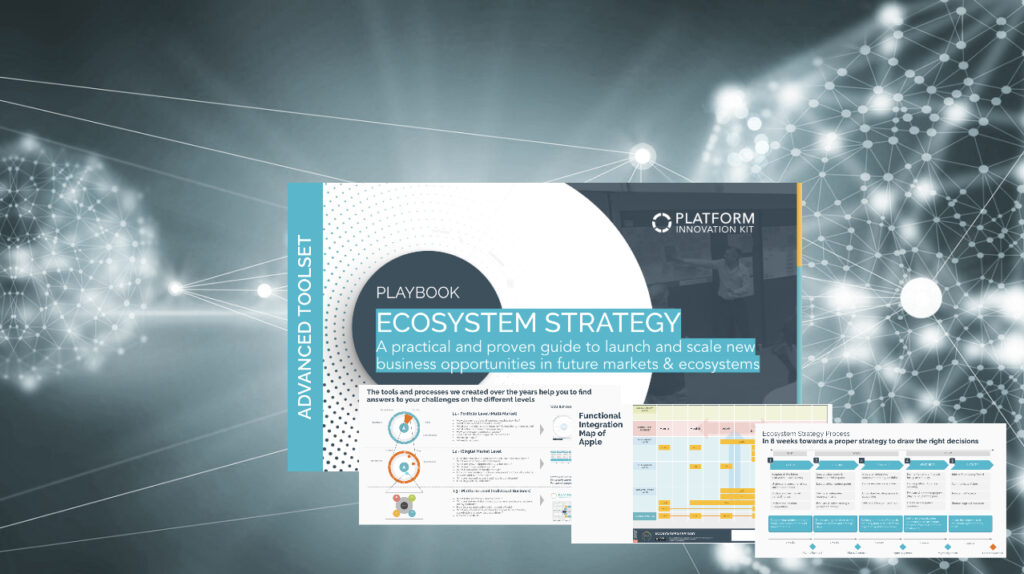Latest Insights

In the dynamic realm of business, where change is the only constant, established companies often find themselves at a crossroads. The challenge is not just to sustain growth but to redefine and expand their horizons in ways that align with the evolving market dynamics and consumer expectations. This is where the concept of an ecosystem strategy emerges as a beacon of innovation and growth. The recent strategic pivot of Zalando, Europe’s leading multi-brand fashion destination, underscores the transformative potential of adopting an ecosystem approach for companies looking to secure their future in the digital age.
Understanding Ecosystem Strategy
An ecosystem strategy transcends traditional business models by fostering a more holistic approach to growth. It involves creating a network of partnerships and platforms that offer complementary products, services, and experiences to consumers. This strategy is not merely about expanding a product line or entering new markets; it’s about reimagining the role of a company within a larger value chain. By becoming an ecosystem player, companies can shape markets, influence consumer behaviors, and create new opportunities for innovation and collaboration.
Zalando’s Strategic Pivot: A Case Study
Zalando’s recent strategic update provides a compelling case study of how established companies can leverage ecosystem strategies to unlock new growth avenues. With over 50 million active customers and partnerships with over 6,000 brands, Zalando has set its sights on expanding from a transaction-focused fashion platform to building a pan-European ecosystem for fashion and lifestyle e-commerce.
Growth Vectors of Zalando’s Ecosystem Strategy
B2C Initiatives: Zalando aims to differentiate through quality, expand lifestyle propositions, and integrate inspiration/entertainment into e-commerce. This approach seeks to enhance customer experience by offering more than just a transactional relationship.
B2B Focus: Through the Zeos operating system, Zalando intends to become the backbone for brand partners’ e-commerce across Europe. This includes offering logistics, software, and services to help brands navigate the complexities of e-commerce.
The ecosystem approach is poised to address a significant portion of the €450 billion European fashion market, aiming for sustainability and a larger market share. Key initiatives like expanding into Sports and Kids & Family segments, offering personalized content, and providing logistical support underscore the comprehensive nature of this strategy.
The Importance of Circular Transactions
While Zalando’s strategy is robust, its approach to reverse logistics and circular transactions will be crucial in the face of growing consumer and regulatory demands for sustainability. The company’s ecosystem strategy opens avenues for more circular business models, which could redefine consumer interactions with fashion and lifestyle products.
The Overarching Narrative for Growth
The shift towards an ecosystem strategy represents a pivotal narrative for established companies. It embodies a vision that goes beyond incremental growth, aiming instead for transformative change. Companies like Zalando are not just looking to survive the digital age but to thrive by becoming indispensable players within a larger ecosystem.
This approach offers a dual advantage. First, it provides a first-mover benefit in shaping new markets and consumer experiences. Second, it creates significant barriers for competitors, establishing a strong defensive moat around the company’s market position.
Conclusion
The evolution of Zalando from a transaction-based platform to an ecosystem orchestrator offers valuable insights for other established companies. The journey towards becoming an ecosystem player is challenging, requiring a reimagining of the company’s role in the value chain, a commitment to innovation, and a willingness to embrace new partnership models. However, the rewards are substantial, offering a path to sustainable growth, market leadership, and the ability to shape the future of industries. As companies navigate the complexities of the digital economy, adopting an ecosystem strategy might just be the key to unlocking their full potential and ensuring their place in the future market landscape.
Below you will find further insights from our work with organizations around the globe to launch and scale businesses based on network effects and a positive impact to our society.
Business Building
B2B Platforms
Toolkits & Frameworks
Please share & subscribe
If you like our articles, please share in your social media and subscribe to our bi-weekly newsletter.

